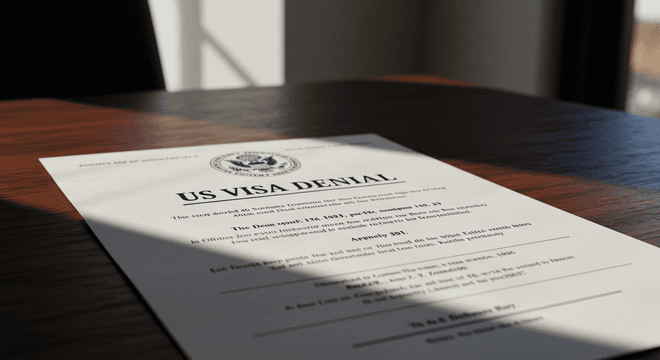
The Global Landscape of Tariffs and Their Impact on Nigeria
Tariffs, defined as taxes imposed on imported goods, serve as significant tools in international trade and economic policy. Governments worldwide employ them for various reasons, ranging from protecting domestic industries to generating revenue and addressing trade imbalances. Understanding the global order of tariffs and recent trends is crucial to analyzing their impact on specific nations like Nigeria, which actively participates in the global trading system.
The International Order of Tariffs:
The modern international tariff system largely took shape after World War II with the establishment of the General Agreement on Tariffs and Trade (GATT) in 1947, which aimed to reduce trade barriers. This evolved into the World Trade Organization (WTO) in 1995, which now oversees international trade rules, including those related to tariffs. Key principles underpin this order:
- Most-Favoured-Nation (MFN) Principle: WTO members must apply the same tariff rates to all other WTO members, with exceptions for specific trade agreements.
- National Treatment: Imported goods should be treated no less favorably than domestically produced goods once they clear customs.
- Tariff Binding: WTO members commit not to increase their tariffs beyond agreed limits, providing predictability in international trade.
Tariffs can be structured in different ways, including ad valorem tariffs (a percentage of the product’s value), specific tariffs (a fixed fee per unit), and compound tariffs (a combination of both). While the WTO provides a framework, regional trade agreements (RTAs) like the European Union (EU) and the African Continental Free Trade Area (AfCFTA), as well as bilateral agreements, also play a significant role in shaping tariff landscapes by often reducing or eliminating tariffs among member countries.
Recent Global Tariff Actions and Trends:
In recent years, there has been a notable resurgence of protectionist measures, with tariffs being increasingly used as political tools. The administration of former U.S. President Donald Trump implemented several rounds of sweeping tariffs between 2018 and 2020, citing an “America First” doctrine aimed at reducing the U.S. trade deficit and reviving domestic industries. These actions, particularly the trade war with China involving tariffs on hundreds of billions of dollars worth of goods, disrupted global supply chains and triggered retaliatory measures from affected countries.
More recently, on April 2, 2025, President Donald Trump announced another series of sweeping tariffs on various countries, designating the day as “Liberation Day”. These tariffs, based on the principle of reciprocity, aimed to match tariffs imposed by other countries on U.S. exports and promote domestic manufacturing. Notable examples include:
- A 34% tariff on Chinese imports.
- A 20% tariff on EU goods.
- Significant tariffs on Vietnam (46%), South Africa (30%), Switzerland (31%), Taiwan and Indonesia (32%), Cambodia (49%), Japan (24%), South Korea (25%), and India (26%).
- A minimal 10% tariff on imports from the United Kingdom, Singapore, and Brazil, reflecting relatively balanced trade.
- A 25% tariff on all imported cars, aiming to bolster the domestic automotive industry.
These tariffs led to sharp declines in U.S. stock indices and raised fears of stagflation and a potential recession. China retaliated with a 34% tariff on all U.S. imports and implemented export controls on rare earth minerals. The European Union and other affected nations also expressed strong opposition, warning of severe consequences for global trade and economic stability. Economists cautioned that these tariffs could lead to increased consumer prices, disrupted supply chains, and heightened risks of a global economic downturn.
The long-term effects of such tariffs are debated. While proponents argue they could boost domestic manufacturing and provide negotiation leverage, critics point to likely negative effects like higher consumer prices, retaliation from other countries hurting exporters, stock market volatility, and supply chain disruptions. Historical examples, such as the Smoot-Hawley Tariff in 1930, which worsened the Great Depression, serve as cautionary tales.
Nigeria’s Tariff Regime:
Nigeria employs both local and international tariffs as key instruments of economic policy.
- Local Tariffs: These include the Value Added Tax (VAT) at 7.5%, excise duties on specific goods (alcohol, tobacco, etc.), customs processing fees, and import substitution tariffs designed to encourage local production.
- International Tariffs: These are primarily administered by the Nigeria Customs Service (NCS) and include import duties ranging from 0% to 35% aligned with the Common External Tariff (CET) of the Economic Community of West African States (ECOWAS). While less common, export duties may be applied to prevent domestic shortages. Other international tariffs include trade facilitation fees like the ECOWAS levy and protective tariffs on goods like rice and vehicles to shield domestic industries.
The policy objectives of tariffs in Nigeria include revenue generation, industrial protection, economic diversification away from oil dependency, and trade regulation. The NCS contributes significantly to Nigeria’s non-oil revenue through tariffs.
Impact of Global Tariffs on Nigeria:
Nigeria, as an active participant in international trade, is inevitably affected by global tariff trends and specific tariff actions undertaken by major trading partners. The sweeping tariffs announced in 2025, while not directly targeting Nigeria with exceptionally high rates (a minimal 10% tariff is applied reflecting relatively balanced trade), can still have indirect consequences:
- Increased Cost of Imports: Even a 10% tariff on goods from key trading partners like the UK, Singapore, and Brazil can increase the cost of these imports for Nigerian businesses and consumers. The 25% tariff on imported cars globally could also impact the Nigerian automotive market.
- Disruption of Global Supply Chains: Broader global trade tensions and tariffs on major economies like China and the EU can disrupt global supply chains. Nigerian businesses that rely on components or raw materials sourced from these regions may face higher costs and logistical challenges.
- Impact on Export Markets: Retaliatory tariffs imposed by countries like China on U.S. goods demonstrate the potential for trade disputes to escalate and affect global demand. While Nigeria may not be directly involved in these specific disputes, a general slowdown in global economic activity due to widespread protectionism could reduce demand for Nigerian exports, particularly raw materials and agricultural products.
- Increased Protectionist Pressures: The trend of major economies resorting to tariffs might create pressure on Nigeria to adopt more protectionist measures for its own industries, potentially contradicting its commitments under free trade agreements like AfCFTA.
- Challenges for Regional Integration: While Nigeria is a key member of ECOWAS and actively engaging with AfCFTA to reduce intra-African tariffs, global protectionist trends could complicate these regional integration efforts by creating external pressures and uncertainties.
Nigeria’s own tariff regime faces challenges such as smuggling, trade disputes, inflationary pressures from high import duties, and policy uncertainty. Navigating the complexities of the global tariff landscape while addressing these domestic challenges requires a coherent and well-calibrated trade policy.
Conclusion:
Global tariffs are a complex and dynamic aspect of international trade with significant economic and political ramifications. The recent surge in protectionist measures and the imposition of sweeping tariffs by major economies create an environment of uncertainty and potential disruption for global trade flows. While Nigeria is not a primary target of the most recent major tariff actions, it is not immune to their indirect effects, ranging from increased import costs and supply chain disruptions to potential impacts on export markets and regional integration efforts. Effectively managing its own tariff regime while navigating the evolving global landscape is crucial for Nigeria to achieve its economic development goals and improve the welfare of its citizens.

